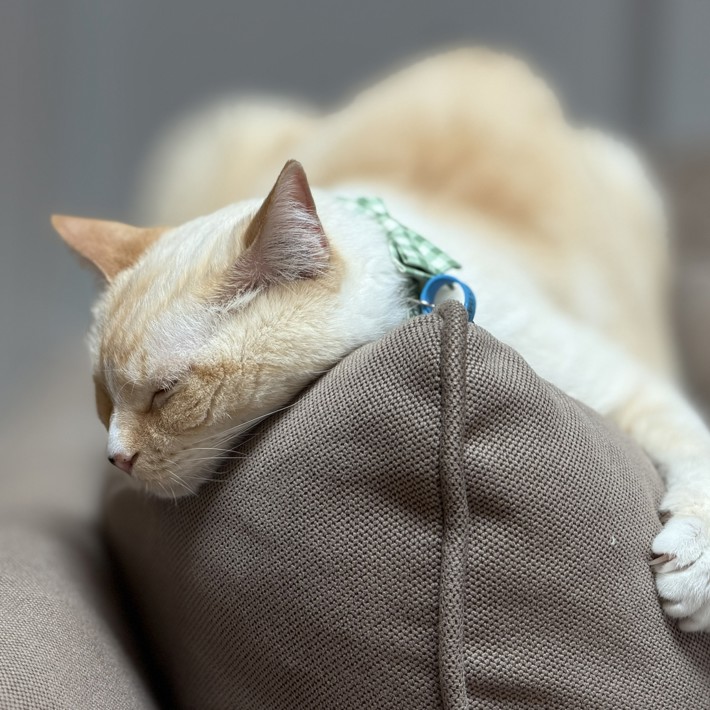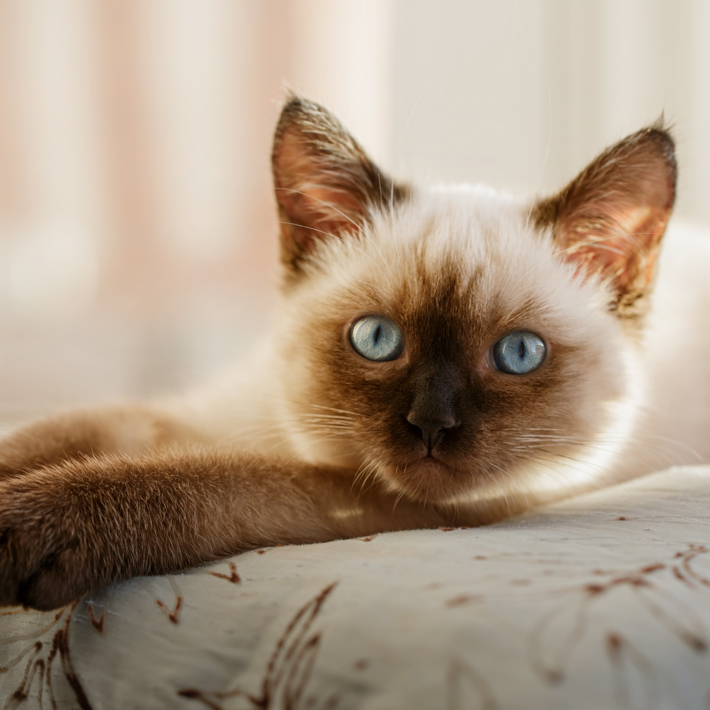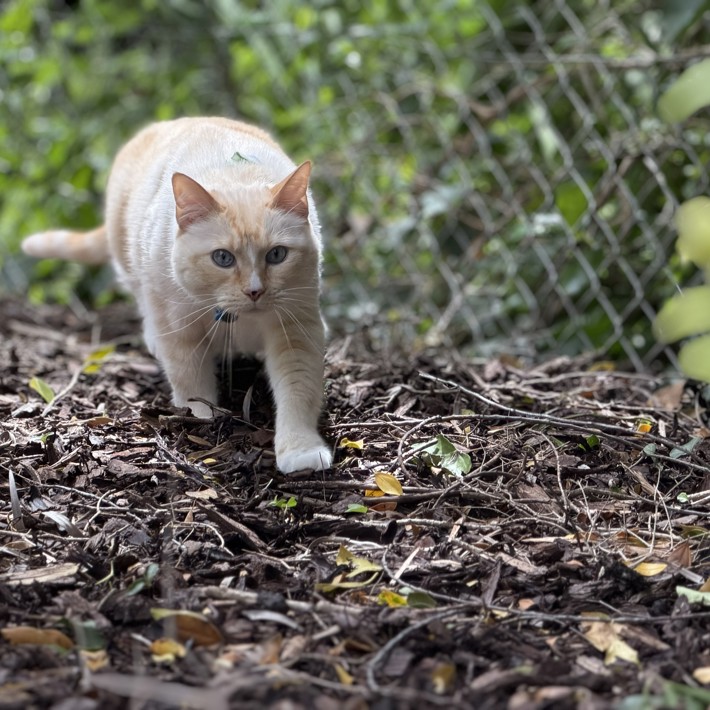Responsible cat ownership
Is your cat registered with Council?
It is a requirement under the Domestic Animals Act 1994 for all dogs and cats to be registered with Council, and wear a Council registration tag at all times in public. Council’s pet registration is separate to microchipping. If you don’t have a Council issued tag, your pet may not be registered.
Cat curfew
The cat curfew starts at sunset and ends at sunrise the next day, every day of the year. There are penalties for cat owners if your cat is caught during the curfew.
The cat curfew does not mean your cat has to be inside. Your cat must stay in your property boundary during curfew hours in your front or back yard (if they cannot leave the property boundary), inside the home or in a suitable cat enclosure.
This restriction is in place to protect our native wildlife, who are known as common prey to roaming cats.
The Safe Cat website has resources to help your cat get used to an indoor lifestyle or outdoor enclosure. Some simple methods include:
- Feeding your cat indoors.
- Instead of letting your cat back outside as soon as they finish eating, keep them inside for longer.
- If you're retraining your cat during the winter, a warm, dry bed to snuggle in may encourage them to stay inside.
- Installing a cat run, cat enclosure or cat-proof fencing so your cat can roam safely on your property.
Stray and roaming cats
The impact from stray & roaming cats is multifaceted and may be affecting you more than you think. Take a moment to read the information below to find out how you can help.
Cat containment and trespass
Your cat can be outside your property boundary during the day but they cannot trespass on any private property, and can be trapped during the day on private property. It is generally best to keep your cat confined to your property to stop it trespassing.
Stray & roaming cats directly affect native species through predation, disease transmission and resource competition. Council receives regular reports of injured wildlife, commonly possums, likely caused by the predatory nature of cats who roam after dark.
When your cat roams outside your property, particularly after dark, they are at a much higher risk of encountering territorial strays and other predatory species (such as foxes). If your cat suffers an injury in a fight or interacts with an infected animal, they are at extreme risk of contracting contagious diseases such as FIV (Feline immunodeficiency virus), Cat Flu (Feline Respiratory Disease), and deadly diseases like Parvo (Feline panleukopenia).


Mandatory desexing
In an effort to contribute to the overpopulation of cats, City of Port Phillip requires all newly registered cats to be desexed. This does not apply to cats registered that are currently not desexed. Registered breeders are exempt from mandatory desexing.
One entire (not-desexed) female cat can lead to thousands of kittens in the space of a year and can fall pregnant as young as 4 months old. This puts immense pressure on our shelters, who are bombarded with abandoned, sick, and helpless kittens year-round.
Research indicates that kittens can be safely desexed as early as 8 weeks old and is recommended by 4 months old. By desexing your cat, you are directly helping manage the unmanageable overpopulation of cats in our city.
There is more information on our pet desexing page.
Cat traps and fines
A cat trapped during curfew and picked up by officers will either be returned to the owners or taken to the Lost Dogs Home in North Melbourne. Owners have to pay a fee for a cat collected from the Council pound. Owners may also face other enforcement actions, such as a fine. People can legally trap a cat on their private property in Victoria.
If you regularly see cats on your property, Council can offer the loan of a cat-trap – a humane and ethical system used to contain stray cats. By trapping a cat on your property, Council can reunite the cat with its owner and educate them around their responsibilities. If the cat isn’t owned, Council may be able to facilitate the rehabilitation and rehoming of the cat.
It's important to not feed any cats that are roaming on your property as this can make them reliant on you, while not addressing the root causes to help them.
Watch the story of Tanya and Tom from the RSPCA.

Useful Educational Resources
- Learn about the risks to your cat when it roams - Rethink Roaming
- Learn how your cat impacts wildlife - Safe Cat Safe Wildlife
- RSPCA Cat ownership guide - RSPCA Knowledgebase
- Legal requirements for cat owners - Agriculture Victoria
- Keeping Cats safe at home - RSPCA NSW
Contact us
Our Animal Management team is here to help. Get in touch if you have questions or would like a print version of any files.
Send us a message on My Port Phillip.
Email: pets@portphillip.vic.gov.au